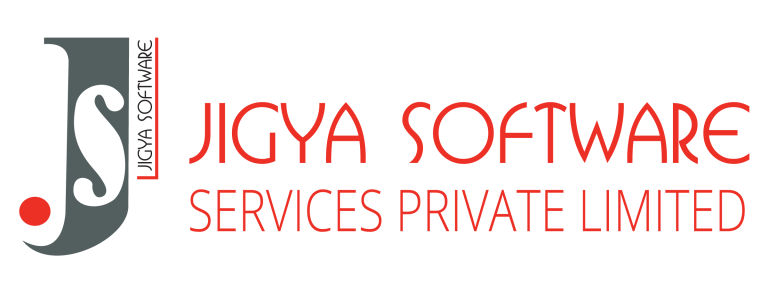In today’s rapidly evolving business landscape, small and medium-sized enterprises (SMEs) are constantly seeking solutions that enhance operational efficiency and reduce administrative burdens. One crucial area where efficiency can be dramatically improved is payroll management. Manual payroll processes can be cumbersome, error-prone, and time-consuming. This is where Human Resource Management Systems (HRMS) with integrated payroll capabilities come into play, offering SMEs robust tools to streamline their payroll operations.
HRMS for SMEs refers to a suite of software applications designed to manage various human resources functions, including payroll, benefits administration, time tracking, and more. These systems are tailored to the needs of small and medium-sized businesses, helping them manage their workforce more efficiently and comply with regulatory requirements.
As the global HRMS market continues to grow—projected to reach $30 billion by 2025 according to a report—the adoption of these systems by SMEs is increasing. The reason is clear: HRMS systems provide a significant return on investment by automating payroll processes, improving compliance, and enhancing overall employee satisfaction.
Comprehensive Benefits of HRMS Payroll Software
Streamlined Payroll Processing
HRMS payroll software automates the entire payroll process, from calculating wages and deductions to distributing paychecks and managing tax withholdings. This automation eliminates the need for manual calculations, which are not only time-consuming but also susceptible to errors.
“The automation of payroll through HRMS not only simplifies the process but also eliminates a significant error margin that can be costly for SMEs”
Enhanced Compliance with Regulations
Payroll compliance is a major challenge for SMEs, as it requires staying updated with constantly changing tax laws and employment regulations. HRMS software helps businesses maintain compliance by automatically updating these changes in its systems and ensuring that all payroll calculations are in line with current laws. This proactive compliance support helps avoid potential fines and legal issues, safeguarding the business’s reputation and financial health.
“HRMS systems serve as a critical compliance partner, ensuring that small businesses remain on the right side of tax laws and employment regulations without constant manual oversight”
Improved Data Security
Payroll data includes sensitive information such as employee social security numbers, bank account details, and salary information. HRMS payroll systems provide robust security features, including encryption and secure access controls, to protect this sensitive data from unauthorized access and potential breaches.
Cost and Time Efficiency
Implementing HRMS payroll software can lead to significant cost savings for SMEs. By automating routine tasks, businesses can reduce the need for extensive payroll staff and minimize the hours spent on payroll management. Additionally, the accuracy of automated systems reduces the costs associated with errors and adjustments in payroll processing.
Employee Self-Service Capabilities
Modern HRMS systems often feature employee self-service portals, where employees can view their payroll information, download pay slips, and manage their personal details. This empowers employees and reduces the workload on HR departments, allowing them to focus on more strategic tasks.
Integration with Other Business Systems
Effective HRMS systems can integrate with other business software, such as ERP systems or benefits management platforms. This integration creates a cohesive ecosystem where data flows seamlessly between systems, increasing efficiency and providing a holistic view of organizational operations.
Real-World Impact of HRMS on SMEs
Case Study: Implementing HRMS in a Retail SME
A mid-sized retail company with 150 employees implemented an HRMS system and observed a 50% reduction in payroll processing time and a 30% decrease in payroll-related inquiries to the HR department. The HRMS system automated tax calculations and filings, which previously took up to 20 hours per month, now handled in real-time within the system.
Case Study: Tech Startup Enhances Efficiency with HRMS
A tech startup switched to an HRMS system to manage its rapidly growing team. The HRMS system provided scalable solutions for payroll, time tracking, and compliance management. As a result, the startup managed to reduce payroll discrepancies by 90% and improve employee satisfaction scores regarding payroll accuracy and transparency.
Conclusion
For SMEs aiming to optimize their operations, HRMS payroll software is not just a tool but a strategic investment. These systems not only streamline payroll processes but also enhance compliance, improve data security, and boost employee satisfaction. As businesses continue to navigate a dynamic economic environment, the role of HRMS in ensuring operational efficiency and resilience becomes increasingly crucial. Adopting an HRMS system provides a solid foundation for not only managing payroll but also driving broader HR strategies that support growth and competitiveness.
For a detailed exploration of our HRMS services, visit our HRMS page. For SMEs aiming to optimize their operations, HRMS payroll software is not just a tool but a strategic investment. These systems not only streamline payroll processes but also enhance compliance, improve data security, and boost employee satisfaction. As businesses continue to navigate a dynamic economic environment, the role of HRMS in ensuring operational efficiency and resilience becomes increasingly crucial. Adopting an HRMS system provides a solid foundation for not only managing payroll but also driving broader HR strategies that support growth and competitiveness.
To learn more about our parent company and its offerings, visit Orpine.


